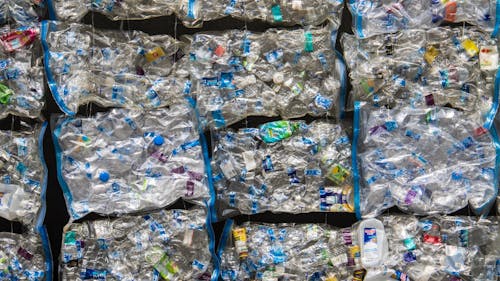Looking into U. waste management, recycling systems

Rutgers oversees its recycling and sustainability programs through the University’s Institutional Planning and Operations (IPO).
Programs include the 32-acre solar canopy that powers 60 percent of Livingston campus, the University’s network of e-scooters and the campus single-stream recycling system, according to IPO's website.
The recycling program ensures plastic, aluminum, glass and paper can be placed in the same bin and recycled.
Carissa Sestito, a University spokesperson, said Rutgers also has directions for disposing of waste that does not fit into single-stream recycling such as food waste, asphalt and other building materials.
“The recycling of all hazardous waste — such as batteries, laboratory chemicals, and solvent waste — is done in conjunction with Rutgers Environmental Health & Safety and is in strict compliance with regulatory guidelines,” she said.
Kevin Lyons, an associate professor in the Department of Supply Chain Management and co-director of the University’s Office of Climate Action, said Rutgers has become a model of waste reduction and recycling model for other institutions.
In 2015, the University took home its ninth consecutive Gorilla Prize at the North American Intercollegiate RecycleMania contest, now called the Campus Race to Zero Waste, he said.
Lyons said Rutgers recycles approximately 60 percent of its waste every year, with University Dining Services boasting the highest recycling rates in the institution.
In addition to the use of LED light bulbs and reusable bags and bottles, Dining Services also employs food waste digesters and tracks its food-related greenhouse gas emissions to combat global warming.
Lyons said there is still room for improvement for Rutgers recycling programs and that it is up to the community to prioritize these initiatives. The University can improve recycling rates by marketing updated communications regarding waste management processes, he said.
Lyons said Rutgers’ business partners and vendors must also be held accountable for the waste their goods and services produce.
“The University purchases a significant amount product to keep the University functioning every day,” he said. “However, we are purchasing both the products and waste that comes with each item. If you purchase any item that comes with packaging, the University must pay to dispose or recycle the packaging materials.”
Uta Krogmann, a professor in the Department of Environmental Science and extension specialist in solid waste management, agrees that there is room for improvement in Rutgers’ waste management.
“When I go with my class on a field trip to the Material Recovery Facility which also receives recyclables from Rutgers for processing, we always ask about the recyclables from Rutgers,” she said. “They always say the quality of the recyclables from Rutgers is not good.”
Krogmann said that while Rutgers is proud of its recycling rates, it does not address how procurement of products such as food affects the environment. She said she hopes the Office of Climate Action will address procurement systems.
“Most important is not how much is recycled, but how much the overall environmental impacts are,” she said. “Once the waste and the recyclables are produced it is too late. It starts with buying products.”
Sestito said the University has overall made strides in sustainable waste management and recycles two-thirds of the solid waste it produces.
“We recycle two-thirds of solid waste and send one-third to municipal landfills. During the last five fiscal years, this equates to over 102,147 tons of recyclables and about 52,445 tons of municipal solid waste,” she said. “Based on this five-year data, Rutgers saved over 321,764 metric tons of carbon dioxide ... by recycling more than 102,147 tons of recyclable material.”



